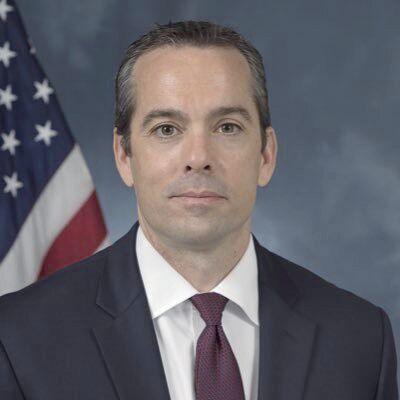Cryptocurrency is presented in cases of extremes. A vehicle for illicit financing. A currency of criminals. A major vulnerability in the financial ecosystem. This is all while Virginia ranks seventh among all states in creating this new digital economy.
Recent congressional discussions included questions about how criminals can leverage cryptocurrency and whether cryptocurrencies could take over the U.S. dollar. Others have touted it as a panacea for financial growth. These concerns are understandable, but they represent only the most extreme examples.
Criminal actors exploit traditional financial models as readily as new ones. The key to preventing misuse is establishing reasonable legislative frameworks.
Several proposals are worth closer attention for their potential to establish clarity around the legitimate use of digital assets and directly address improper use. These include:
The Financial Innovation and Technology Act for the 21st Century. This legislation has advanced through the House Financial Services Committee and has bipartisan support. Generally, the proposed law aims to define when a cryptocurrency is a commodity rather than a security and empowers the Commodity Futures Trading Commission to regulate digital asset commodity spot markets.
If passed, this act would establish a pathway for crypto trading platforms to register with the CFTC and the Securities and Exchange Commission. It would solidify a process for certifying whether a blockchain is sufficiently decentralized.
The Financial Technology Protection Act of 2023. Another bipartisan proposal from the House Financial Services Committee, this seeks to create an independent financial technology working group – with members from the Treasury Department, Department of Justice, Department of Homeland Security, Department of State, the CIA, fintech companies, blockchain companies, financial institutions and research organizations – to combat terrorism and illicit financing.
This group would research how new financial technologies are used to fund terrorism and other illicit activities and develop policy proposals for mitigating those uses.
The National Defense Authorization Act (NDAA). The Senate recently passed the NDAA, a bipartisan bill to secure investments in the U.S. military. A new amendment established a requirement for regulators to set examination standards for financial institutions engaged in crypto to prevent money laundering and terrorist financing. The Treasury Department would provide recommendations to Congress regarding crypto-related risks.
When the frameworks above, or other similarly empowering ones, are implemented, the industry will have a foundation for improved governance. Financial institutions and other organizations in the digital assets industry will be in a stronger position to pursue a wide range of impactful use cases and follow clear rules while doing so.
For example, remittances and other legitimate international funds transfers – such as relief aid to war-stricken countries and communities suffering from natural disasters – could become faster and less expensive than traditional models allow.
Case in point, cryptocurrency fundraisers through the United Nations and the Ukrainian government generated hundreds of millions of dollars in donations to aid the country and its citizens and refugees. Similar efforts in Turkey and Syria delivered millions of dollars in recovery funds after the earthquake disaster in early 2023.
Domestically, businesses could more easily incorporate cryptocurrency as an accepted form of payment for goods and services. The global cryptocurrency market cap the first week of 2024 was $1.69 trillion, a 101.87% change from the previous year. Finally, the recent bitcoin spot ETF (exchange-traded funds) offering has resulted in bitcoin overtaking silver to become the country’s second largest commodity ETF asset class, second only to gold.
And cryptocurrency is only one use case of blockchain technology. When applied to other financial instruments, the blockchain can reduce barriers to issuance, facilitate direct trading, establish instant and transparent settlement and clearing, reduce costs, improve auditing and more. Beyond finance, the blockchain enables real-world assets to be tokenized for improved management, tracking and transfer and governance.
Given its positive potential, laws and regulatory oversight need to be carefully considered to achieve these goals. A collaborative process that doesn’t focus on extremes will help cryptocurrency move toward a sound middle ground that enables safe, rapid growth and innovation to keep Virginia’s lead.
Jeremy A. Sheridan, a Fairfax-based managing director at FTI Consulting, is an expert in digital currencies, financial crime investigation, blockchain and smart contracts.



(1) comment
crypto is a scaaam get outta hereee
Welcome to the discussion.
Log In
Keep it Clean. Please avoid obscene, vulgar, lewd, racist or sexually-oriented language.
PLEASE TURN OFF YOUR CAPS LOCK.
Don't Threaten. Threats of harming another person will not be tolerated.
Be Truthful. Don't knowingly lie about anyone or anything.
Be Nice. No racism, sexism or any sort of -ism that is degrading to another person.
Be Proactive. Use the 'Report' link on each comment to let us know of abusive posts.
Share with Us. We'd love to hear eyewitness accounts, the history behind an article.